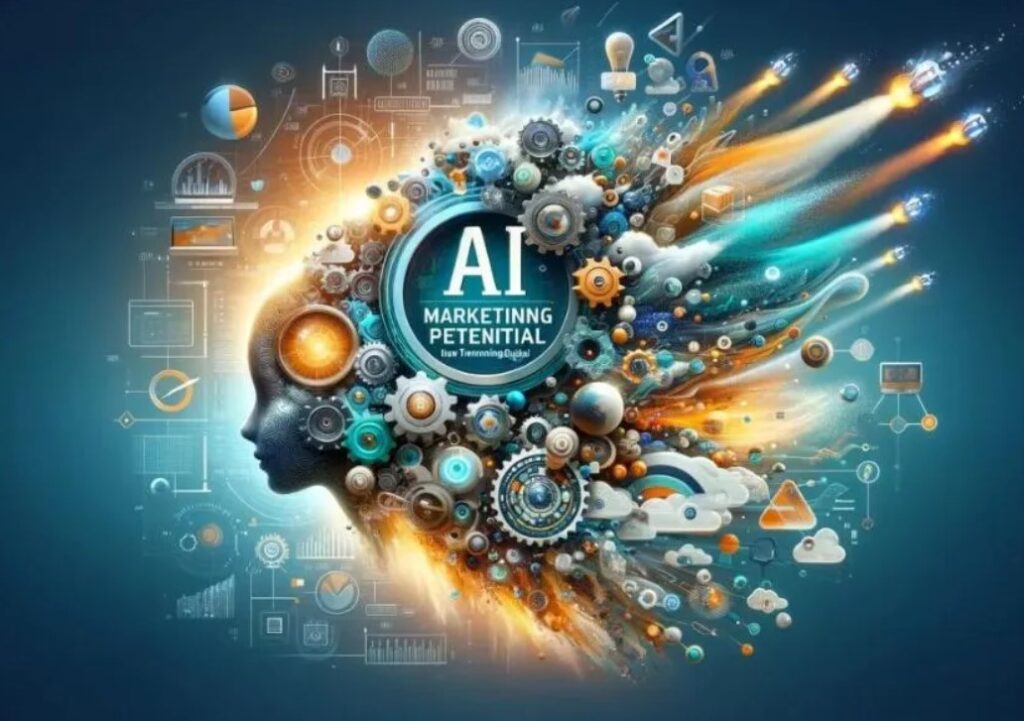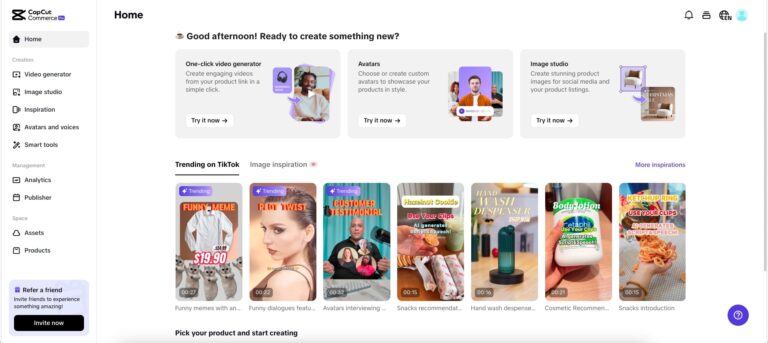AI technology is reshaping digital marketing by helping firms enhance strategies while improving customer interactions and boosting engagement levels. AI-powered tools enable marketers to process extensive datasets while automating routine functions and delivering highly personalized content across massive scales. This transition enhances operational efficiency while simultaneously transforming brand-audience interactions.
The topic of AI implementation in marketing strategies is becoming more crucial as organizations adopt AI-based solutions. AI-driven solutions in marketing efforts have made the question “How is AI used in marketing?” more relevant for companies. AI technologies continue perfecting the art of predictive analytics and automated content creation, together with chatbots, are transforming business digital marketing strategies. This article examines the major ways AI transforms marketing approaches while showing how businesses can use this technology to maintain a competitive edge.
-
Table of Contents
ToggleAI-Driven Analysis
AI excels in the marketing domain because it can handle vast amounts of data and conduct fast analyses. Traditional data analysis methods take too long and struggle to identify current trends. AI-based analytics platforms are capable of recognizing patterns and forecasting customer behavior to deliver valuable insights for decision-making.
AI-powered customer relationship management systems track user interactions across multiple communication channels, enabling businesses to learn customer preferences and customize their marketing campaigns. Through predictive analytics, marketers can foresee upcoming trends, which helps them refine their marketing strategies by making data-based decisions.
-
More Enhanced Personal Experiences
Artificial Intelligence transformed digital marketing personalization by helping brands distribute targeted content to specific users. Recommendations tailored to users emerge from machine learning algorithms that process their interactions and preferences alongside historical behavior data. Customers become more engaged, and conversion rates have risen through this advanced level of content customization.
Netflix and Amazon apply AI-driven recommendation engines that generate content and product suggestions by analyzing users’ browsing histories. AI-driven email marketing platforms optimize open rates and engagement by customizing subject lines, content, and send times.
Businesses now rely on chatbots and conversational AI to enhance customer service operations and boost engagement. Businesses use AI-powered chatbots to answer customer questions while simultaneously suggesting products and handling transactions as they occur. In the gaming industry, AI chatbots are essential in assisting members with online streaming, and new sweepstakes casinos handle account issues like deposits, promotions, and withdrawal issues.
Virtual assistants provide continuous customer support around the clock by delivering immediate responses without requiring human assistance. The brands Sephora and H&M utilize AI chatbots to help customers choose products and provide styling recommendations. These chatbots utilize natural language processing to comprehend and reply to customer questions as humans do, which improves the shopping experience.
-
AI-Driven Ad Creations
Digital advertising has been transformed by AI through programmatic ad buying, which automates both ad purchasing and placement. AI algorithms process user data when it comes to finding optimal ad placements that ensure advertisements reach their intended audience at the appropriate moment.
Google Ads and Facebook Ads platforms deploy AI technology to enhance ad targeting methods while optimizing bidding strategies and creative components. The automation system enhances ad performance while cutting costs by removing manual tasks.
-
AI-Powered Social Media to Find True Niches
Sentiment analysis applications powered by artificial intelligence enable marketers to gauge their brand perception by analyzing real customer reactions and posts on social media platforms like X, reviews, and comments. Sentiment analysis tools powered by NLP identify different sentiments in customer feedback so businesses can respond in a timely manner.
Social media monitoring tools that use AI capabilities can reveal new trends and potential PR issues, which allows brands to tailor their messaging strategies. Real-time analysis enables businesses to uphold their brand image while engaging their audience more successfully. By knowing how customers truly feel about a product or service, businesses can also try to fix failed campaigns while having a jump on future products and services to connect with the members.
-
Conclusion
AI evolution will transform marketing strategies by enabling instant decision-making capabilities, enhanced customer insights, and automated processes. Companies utilizing AI marketing technologies will achieve competitive superiority through their capacity to run highly personalized campaigns based on data analytics, boosting customer engagement and return on investment.











